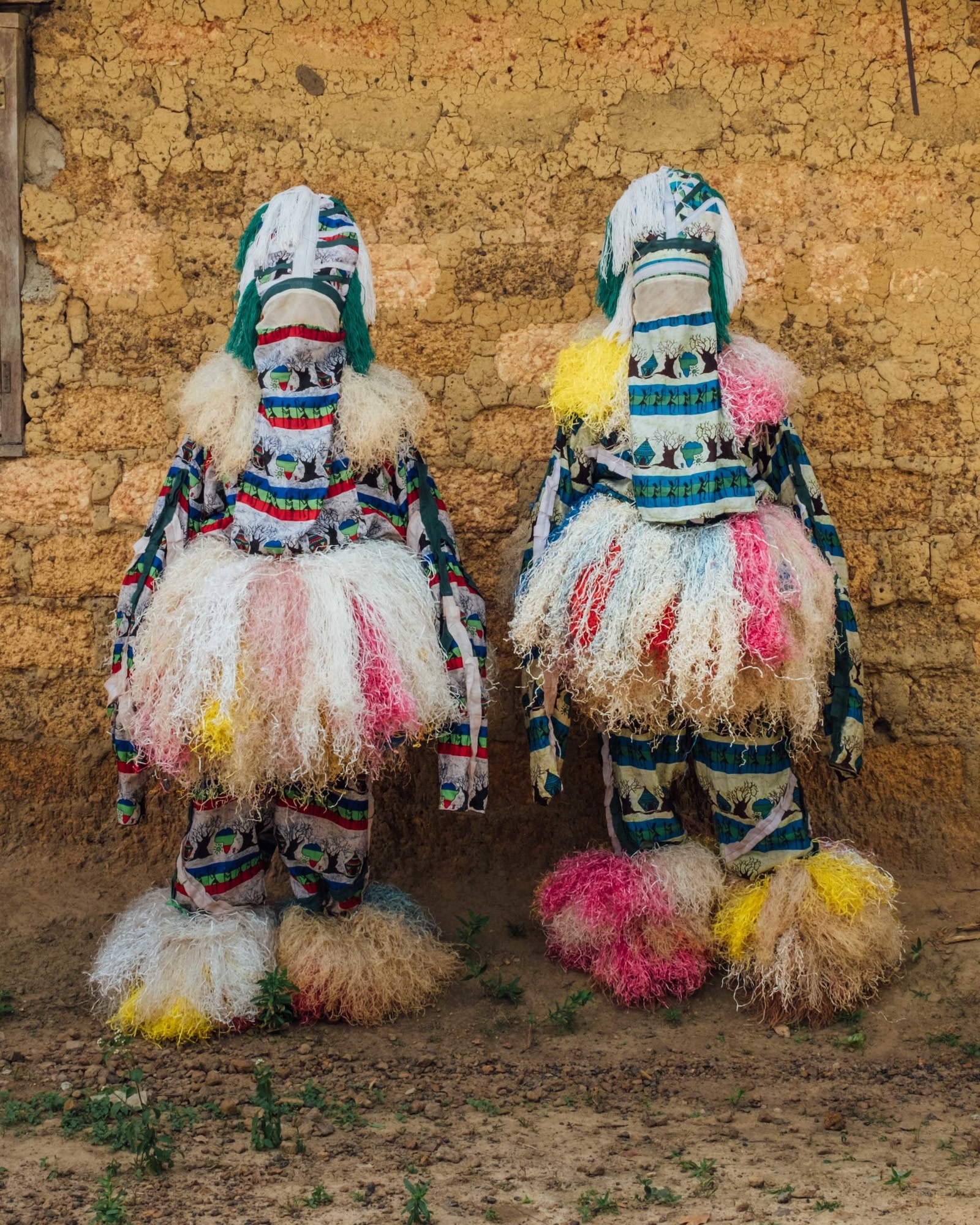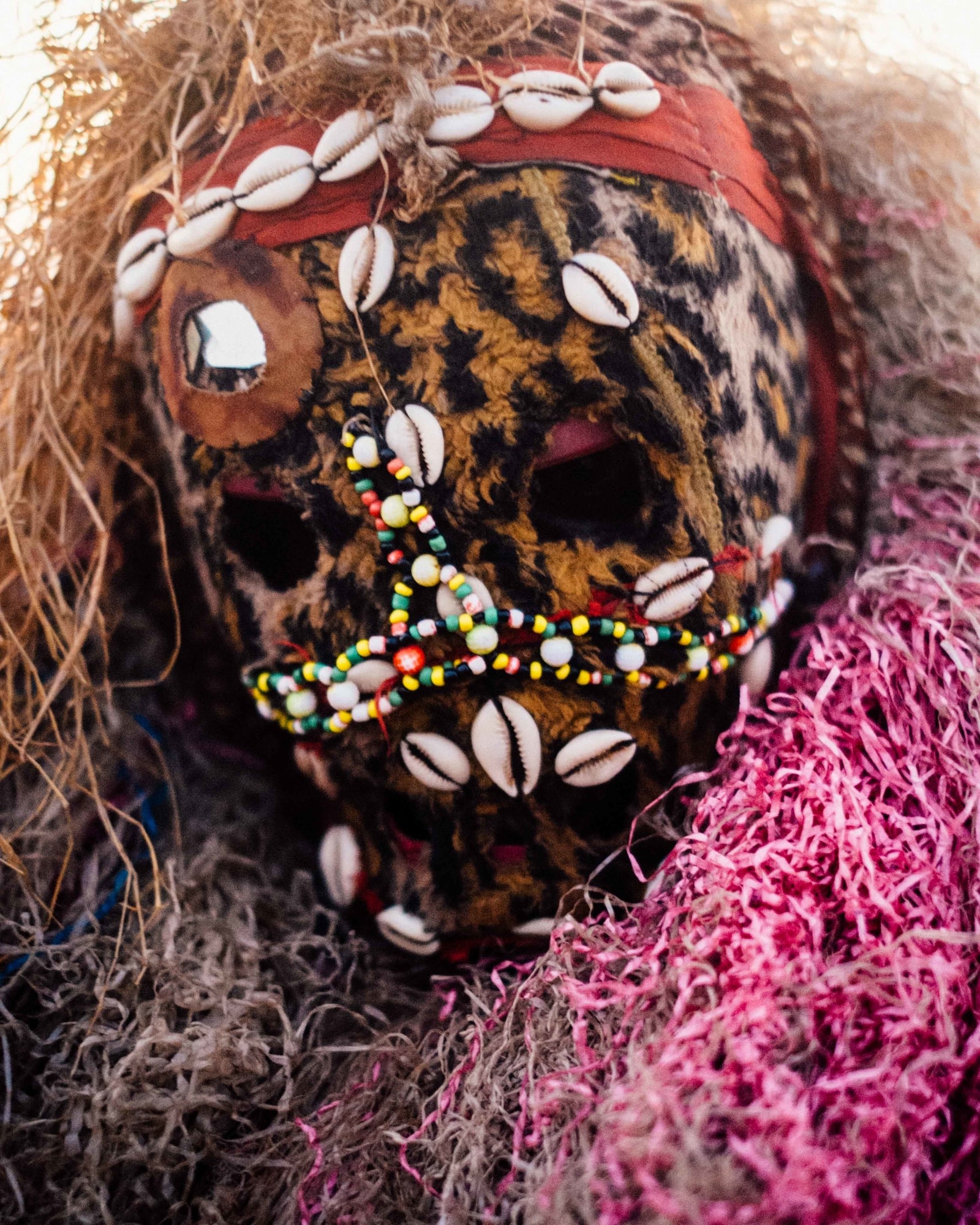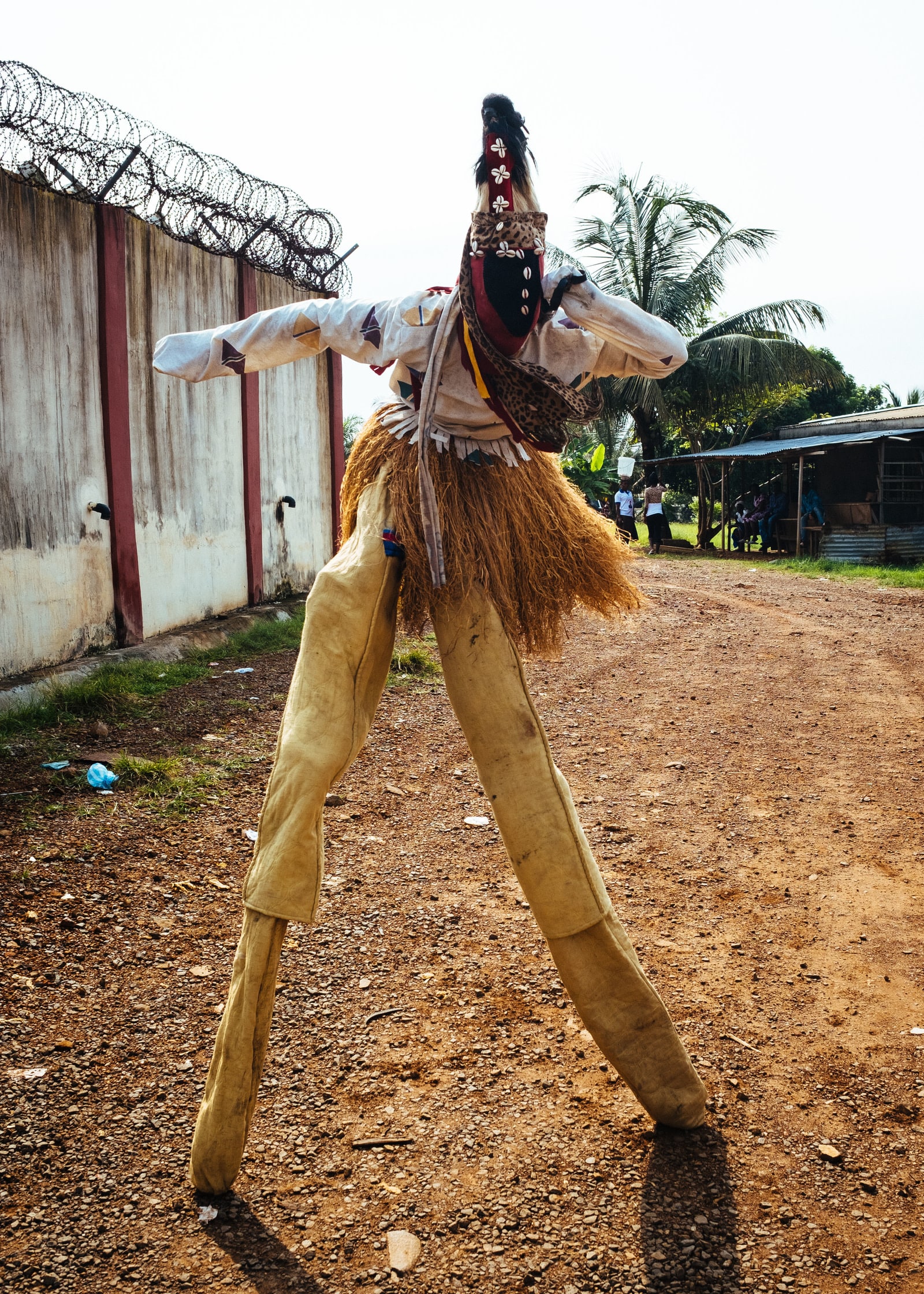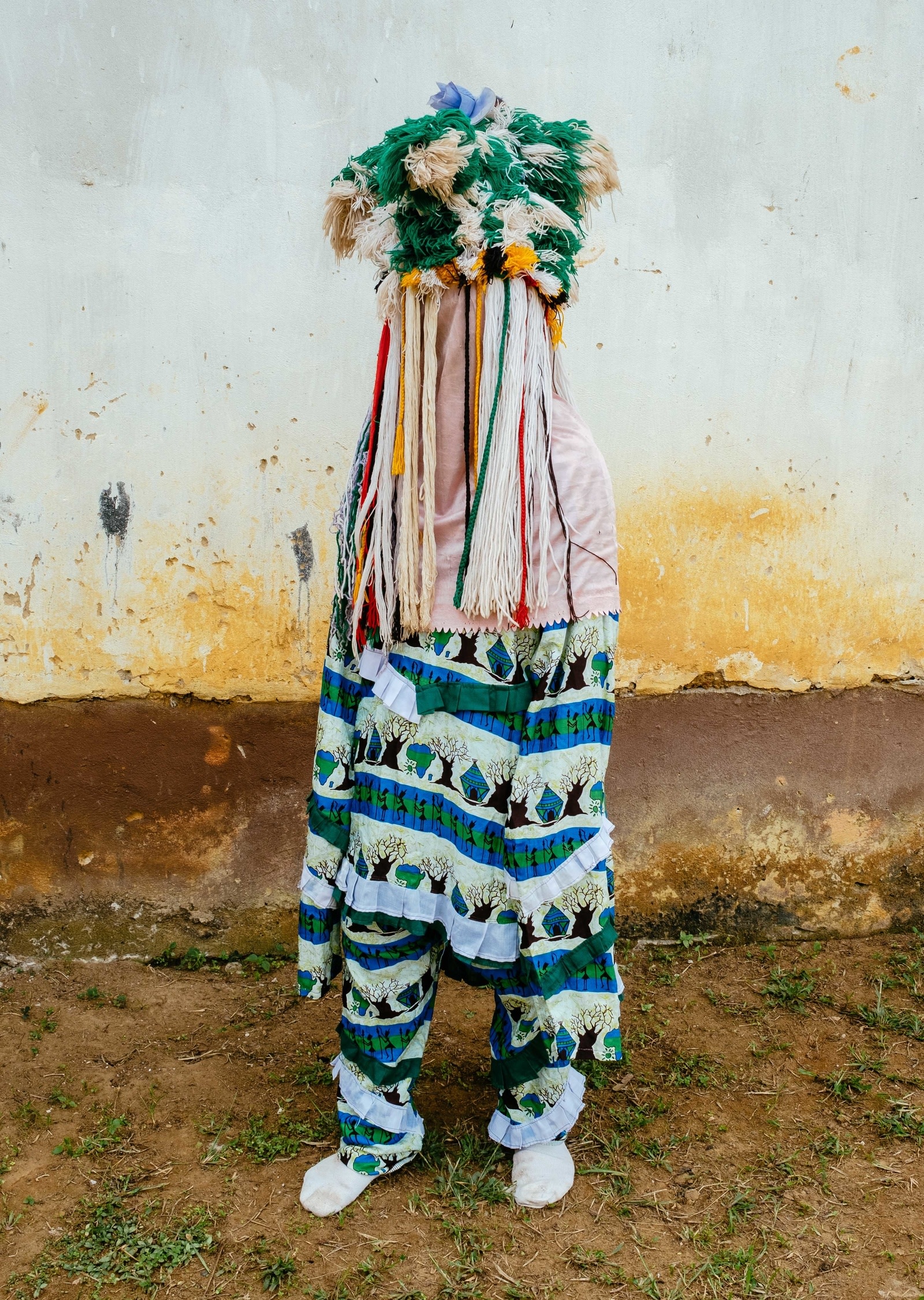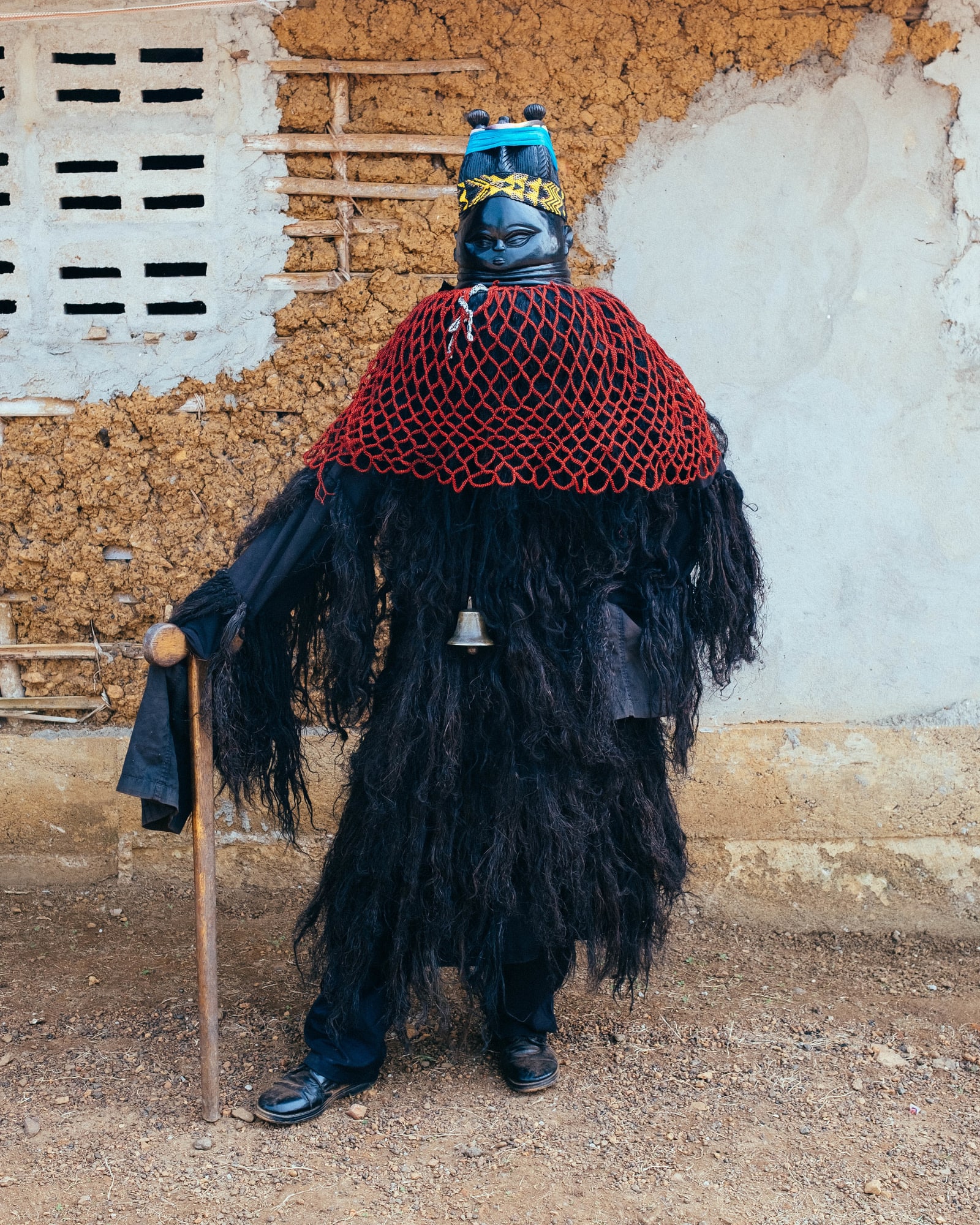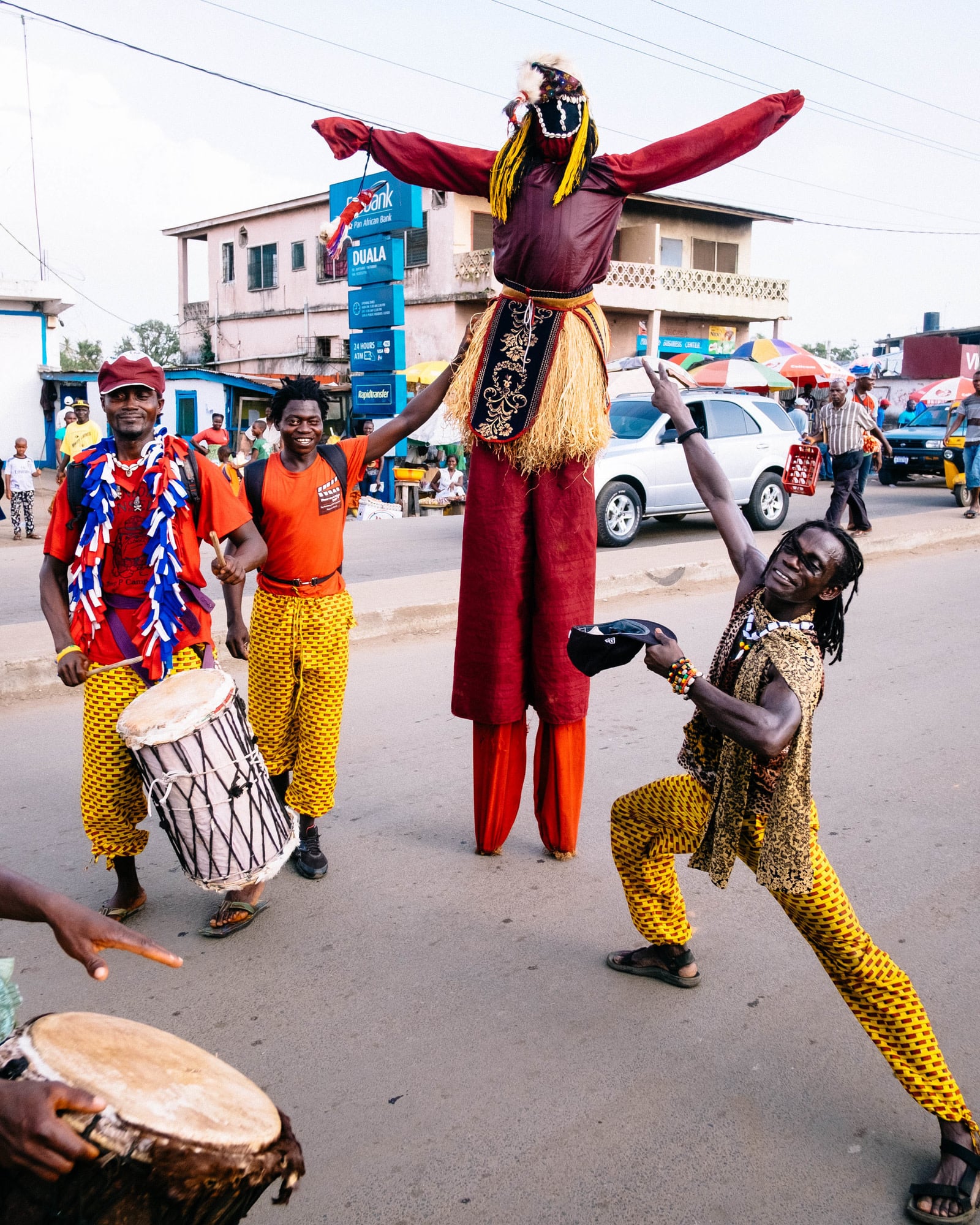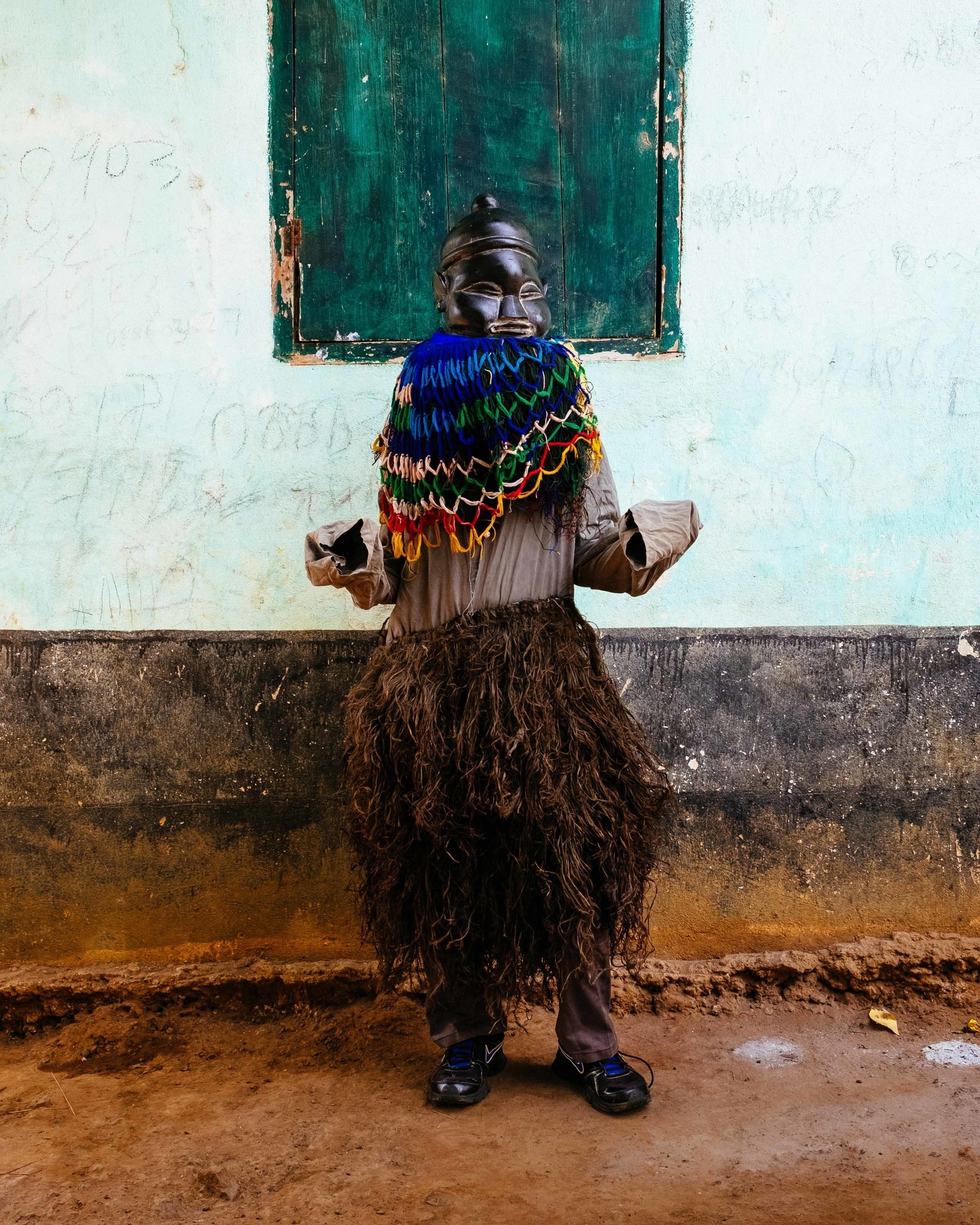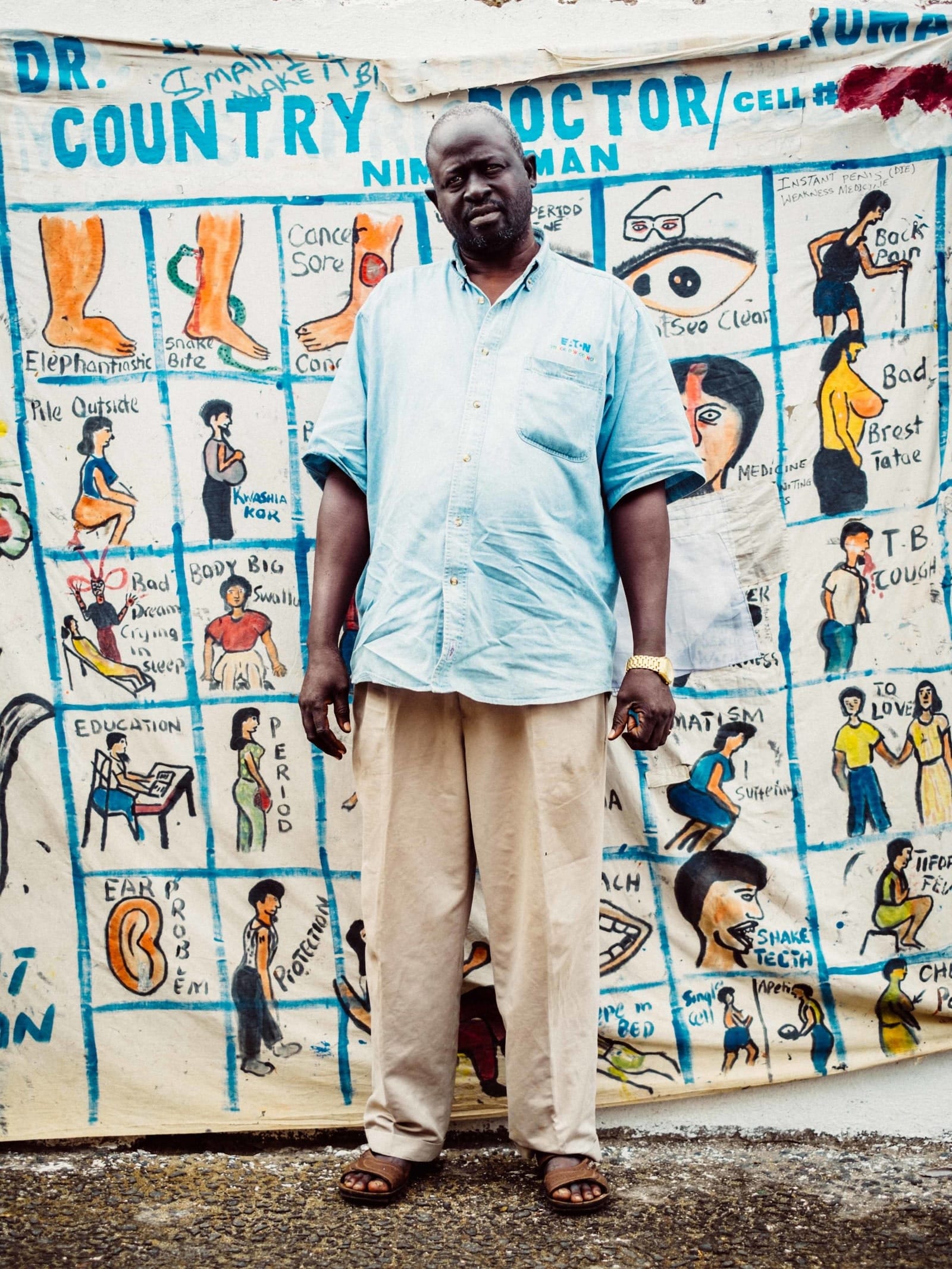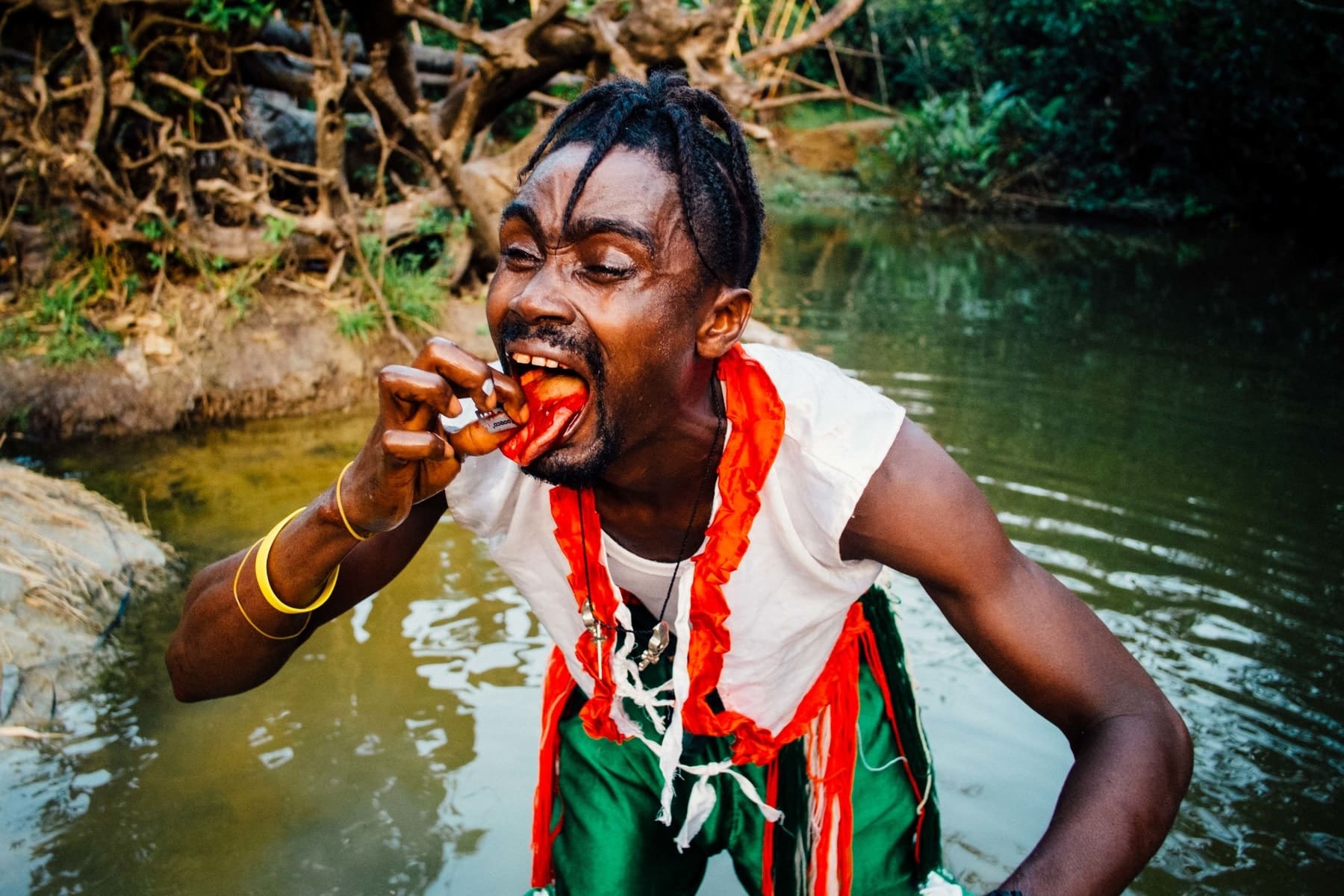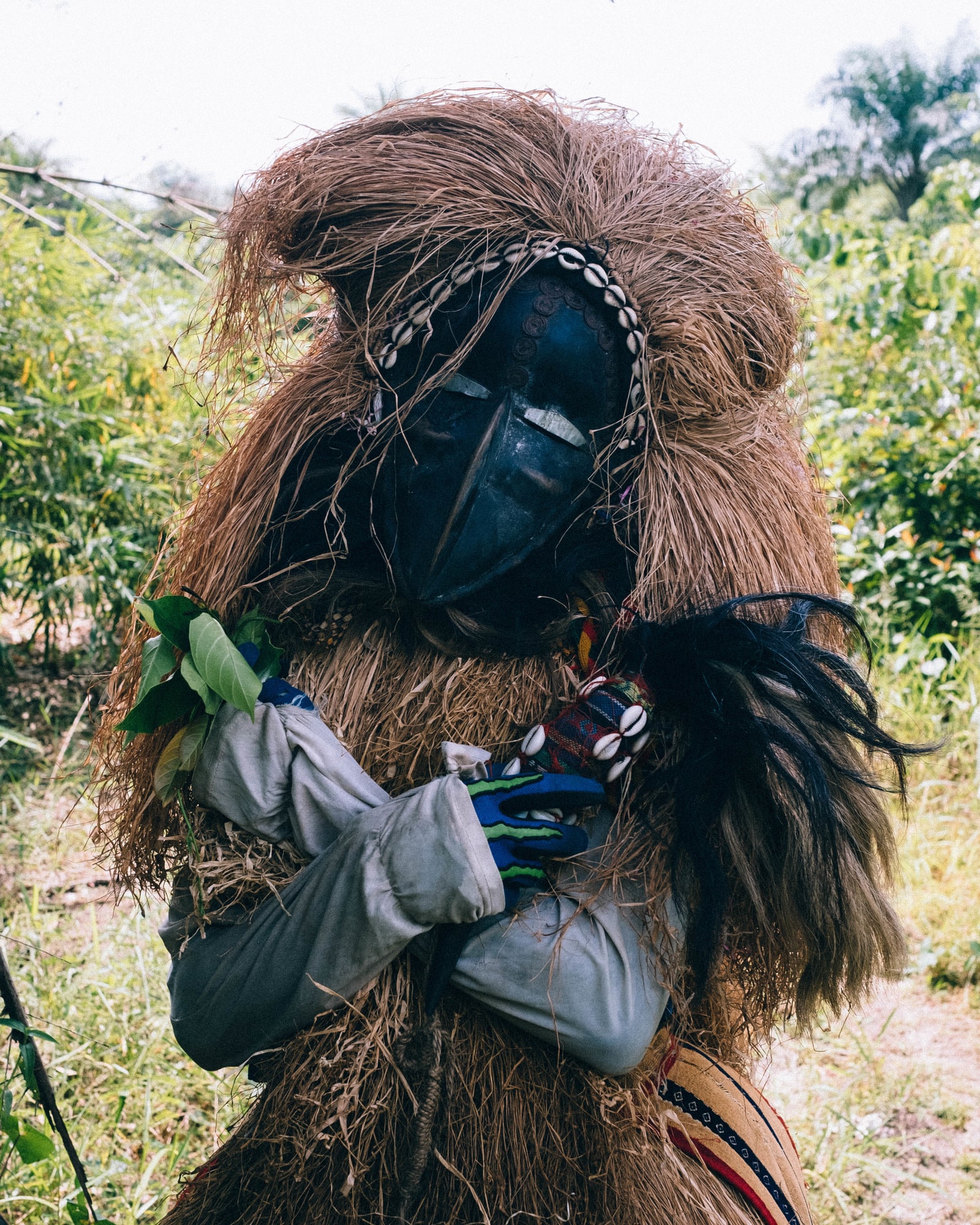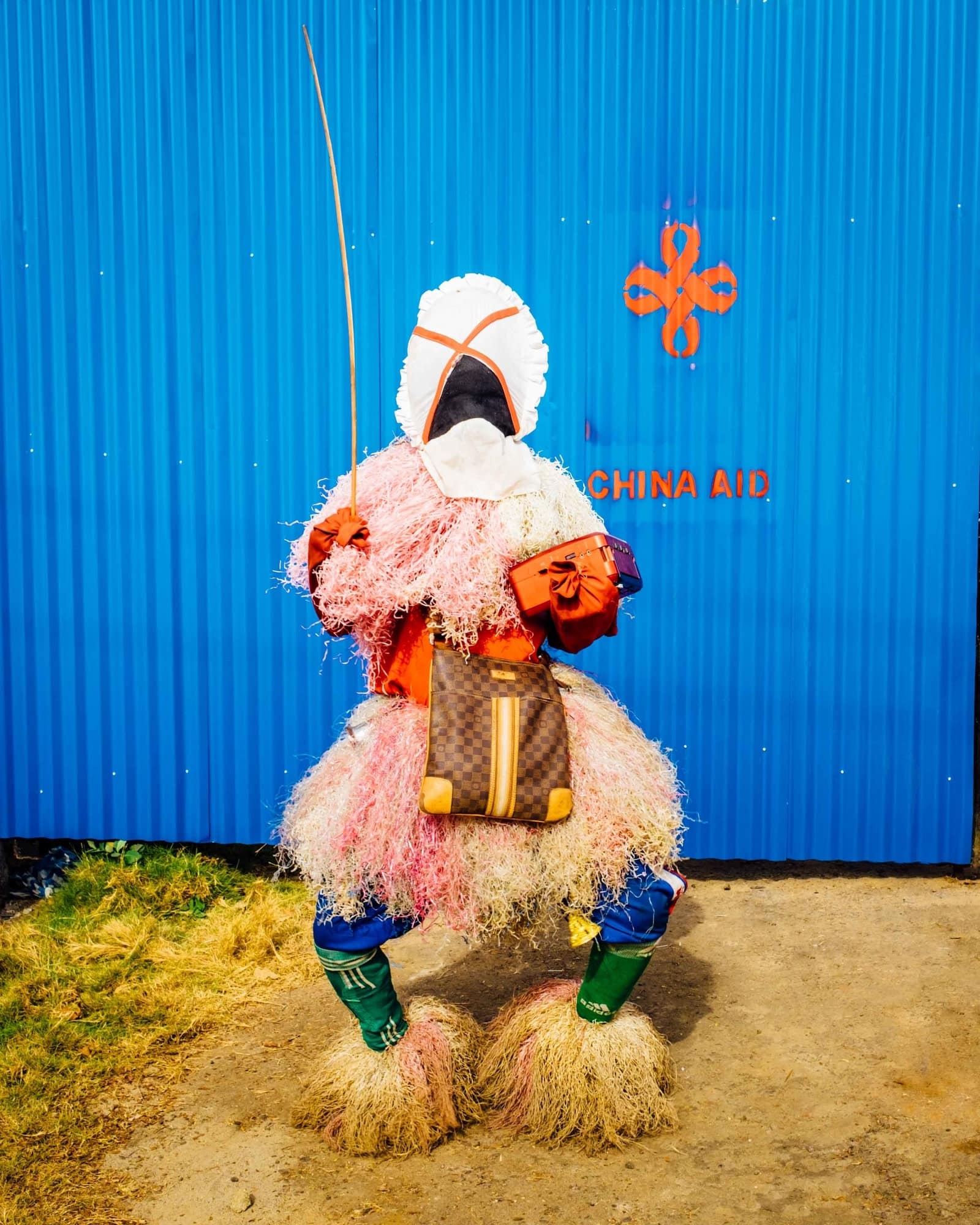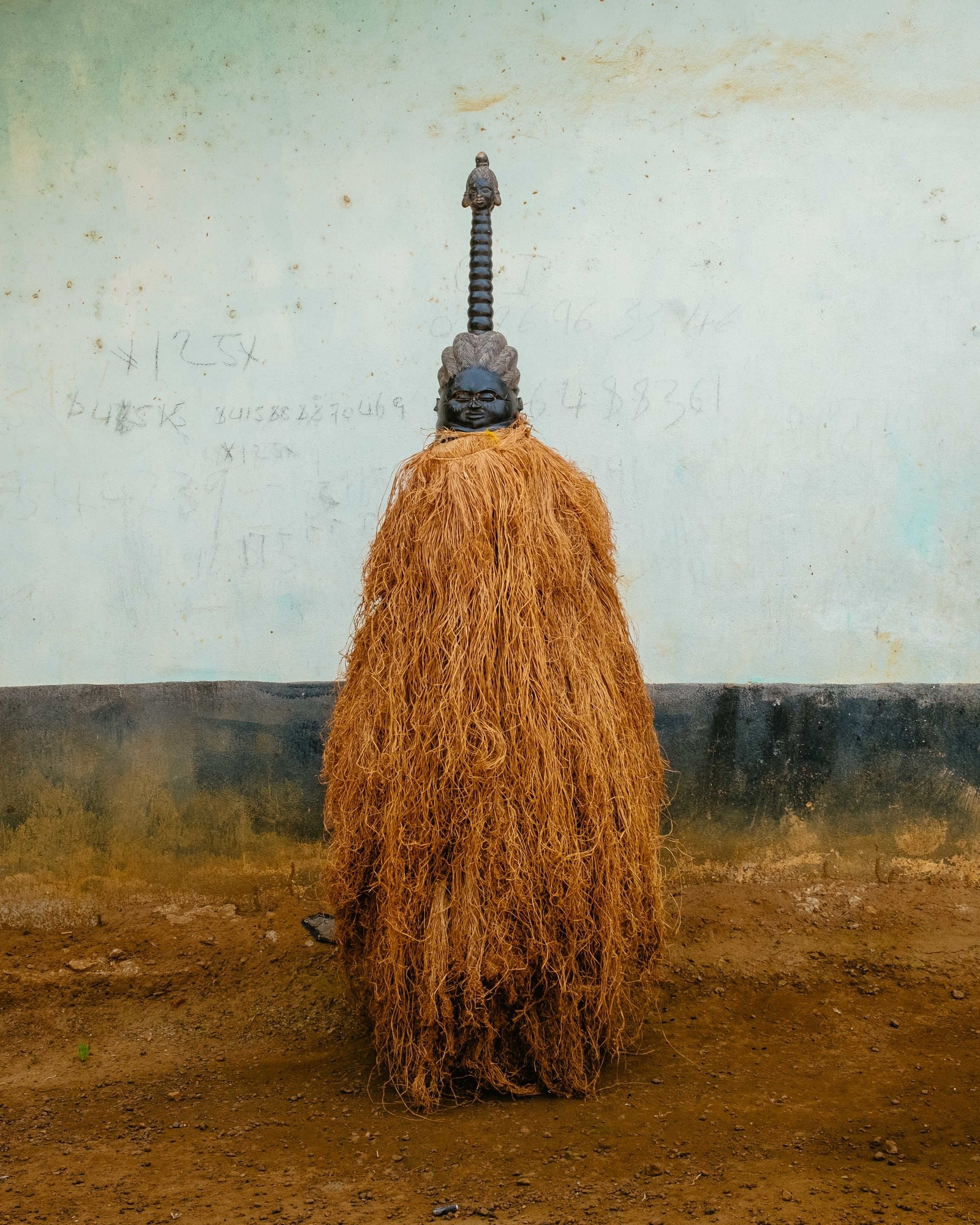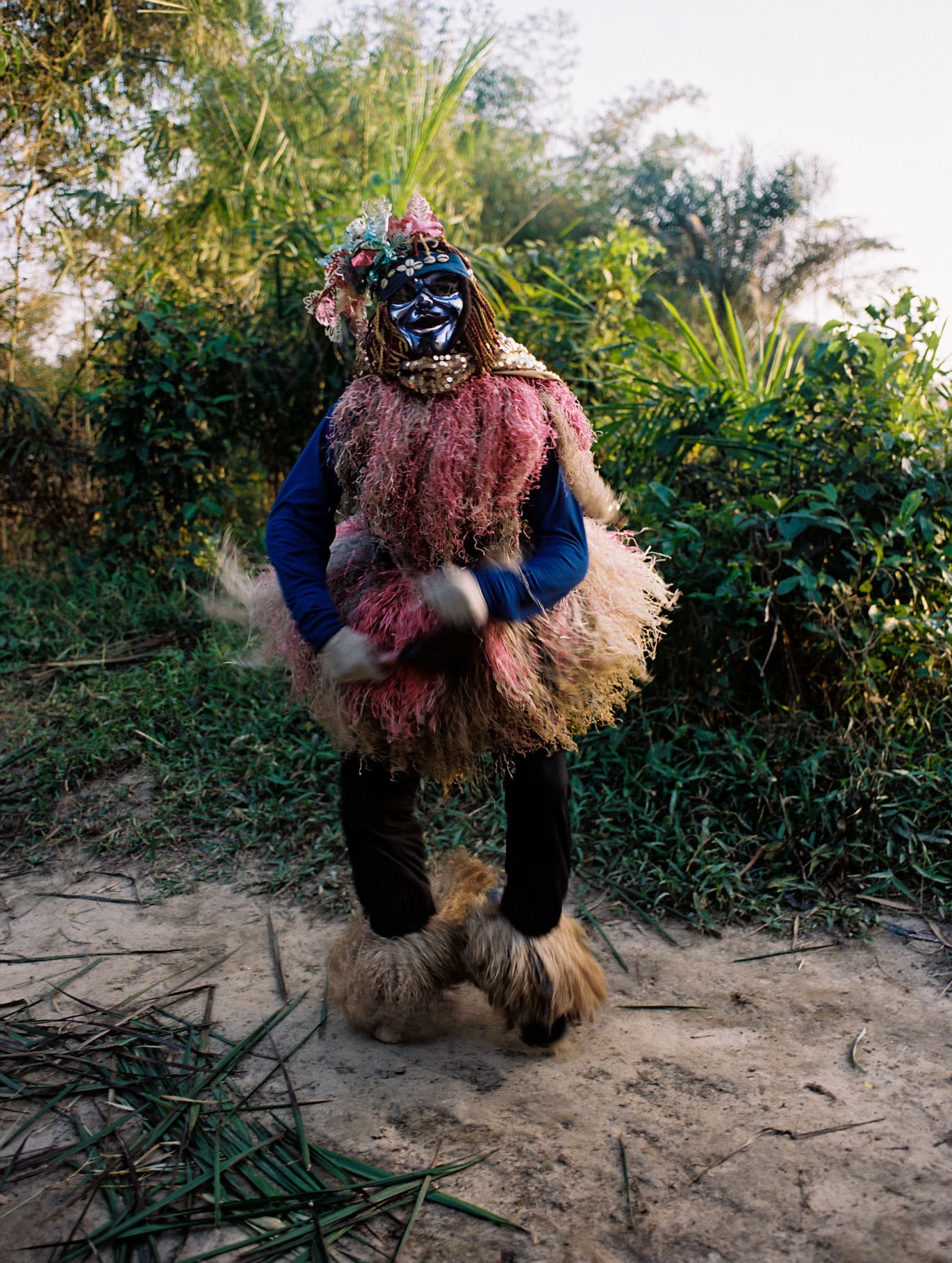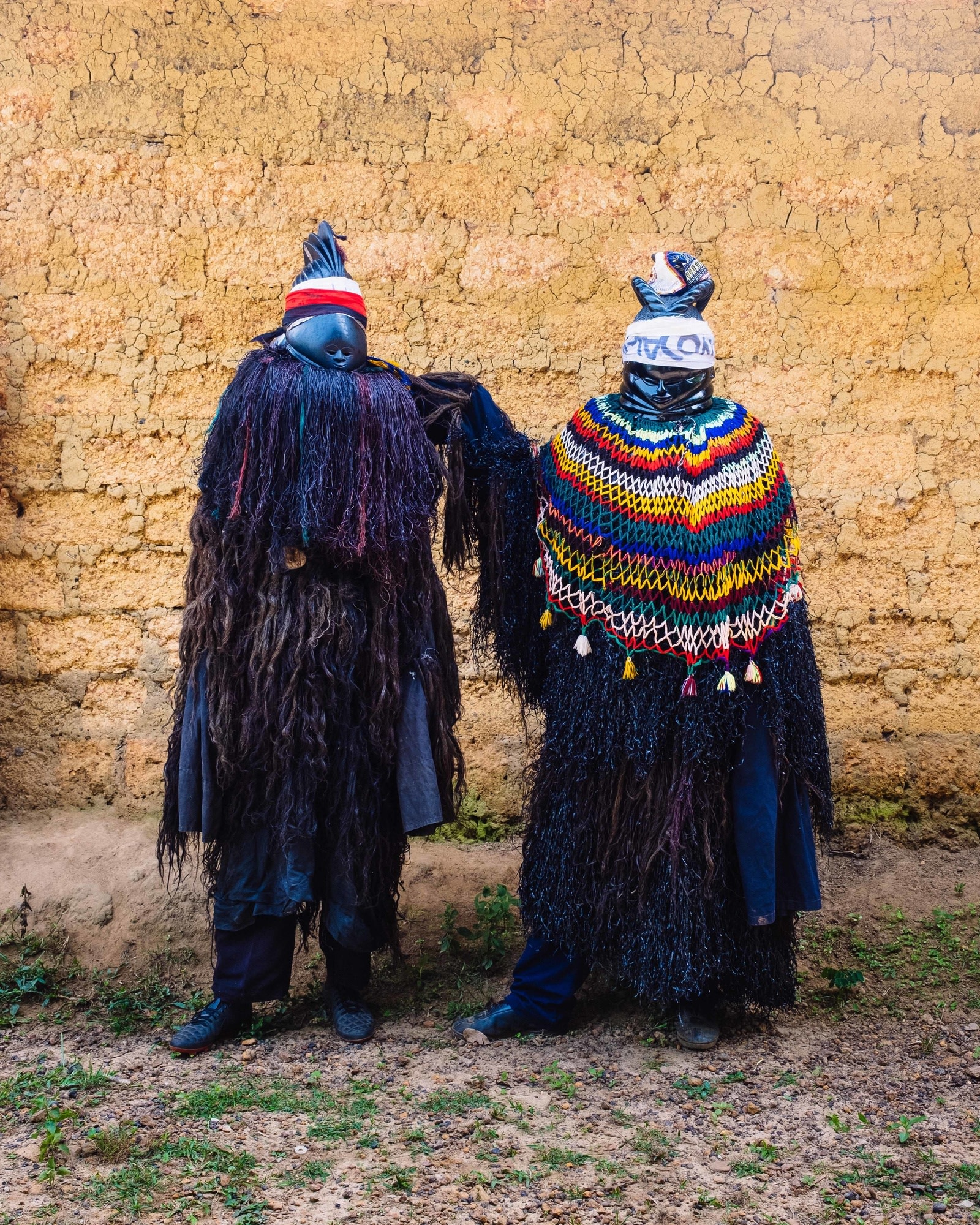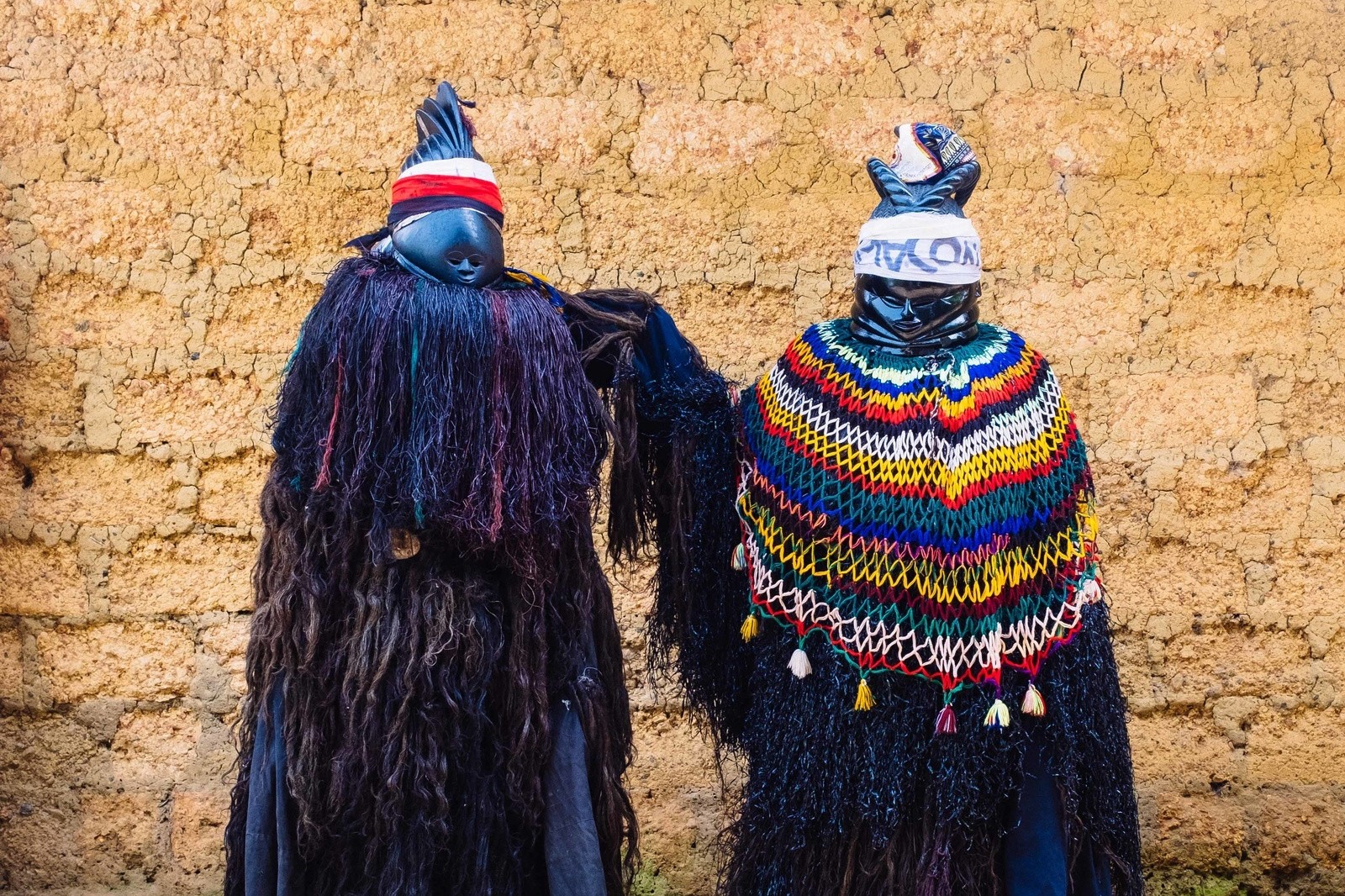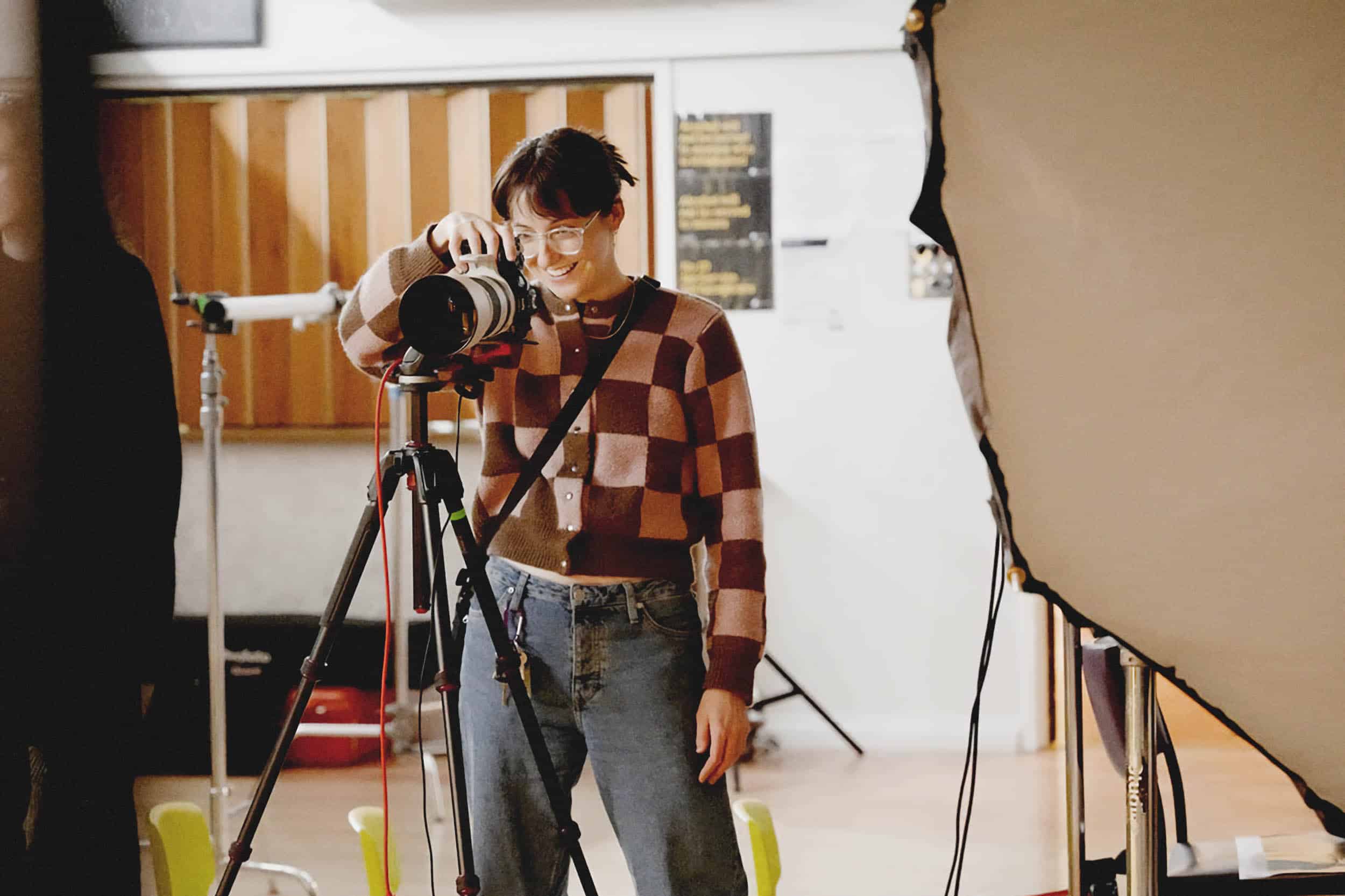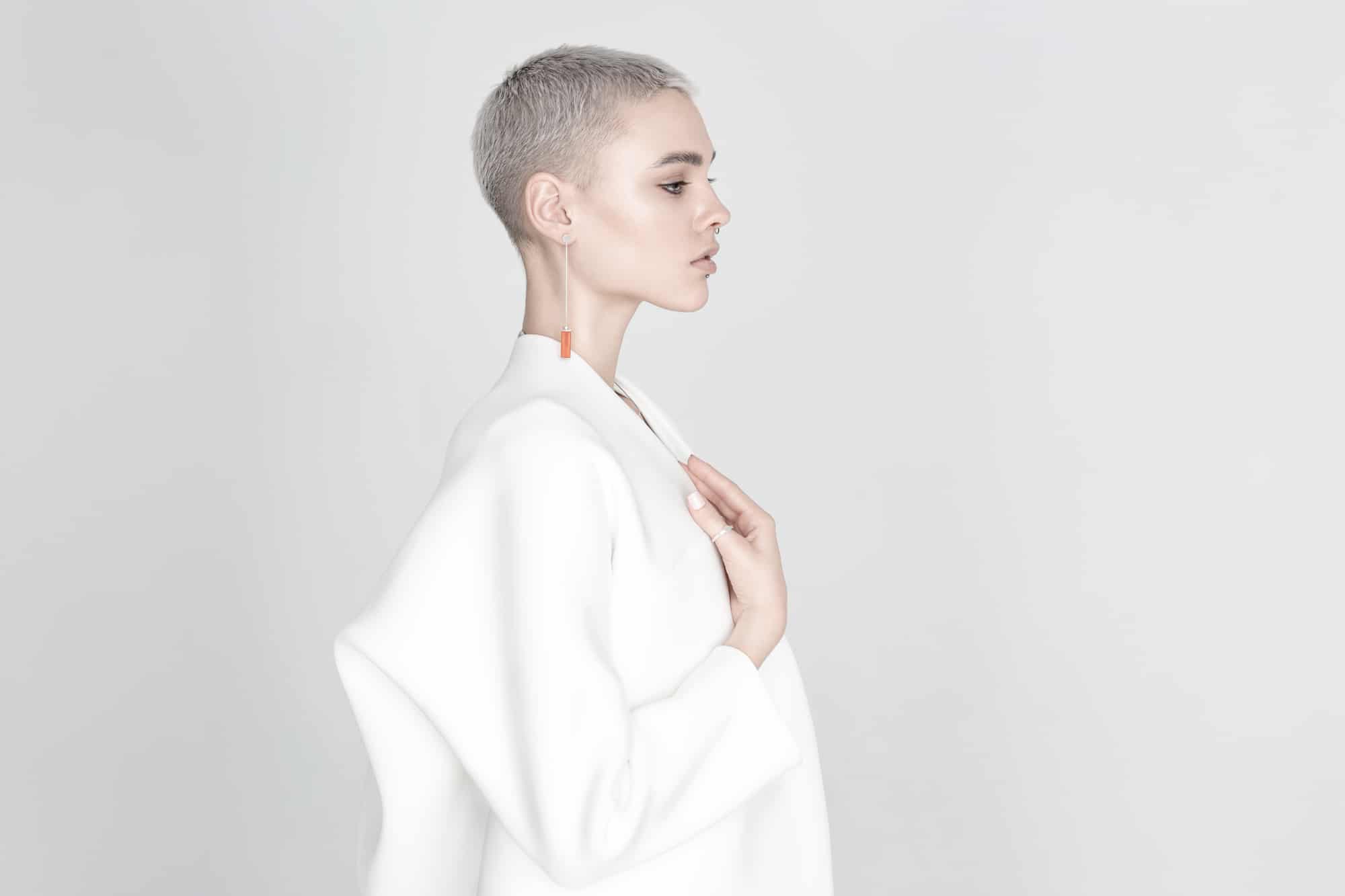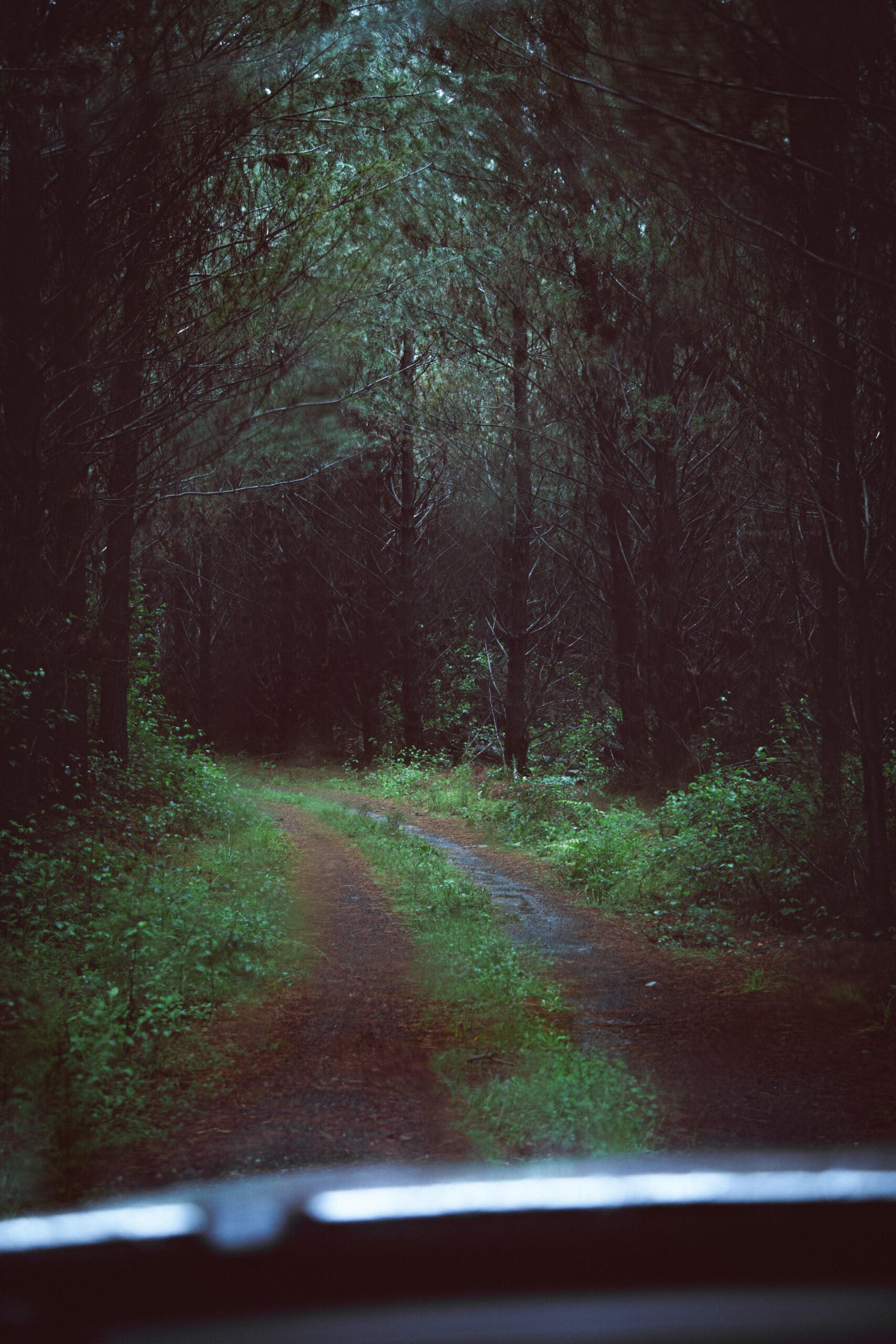On a trip to the West African nation of Liberia to visit his girlfriend’s family, British photographer Conor Beary decided to learn more about the place he was visiting. He became intrigued by the witch doctors he saw in Monrovia, Liberia’s capital city. “I started noticing these guys who stand on the side of the road, they have these large painted sheets that tell everybody which illnesses they can fix,” Beary told us. “I saw one guy, hopped out of the car and asked if I could take his picture, and that’s where it all started.”
Beary’s travels took him deep into the bush, where he met witch doctors, dancing devils, and other practitioners of juju. Formerly the dominant belief system in Liberia, juju is part of some traditional West African religions, and incorporates spells, amulets, and witchcraft into religious practice.
“The witch doctors are the guys who aren’t wearing costumes,” Beary explains. Witch doctors work to cure people who believe they have been made ill by witchcraft. “The guys in costumes are called dancing devils, and they are masked performers who embody their individual tribal demons and deities.”
Beary’s images reveal a window into a community which, rarely seen by outsiders, works to keep its oldest traditions alive. Despite the contentious nature of juju beliefs, he wants to leave his photos open to interpretation.
“I don’t know enough about the communities or juju to be able to comment on it as an expert,” Beary says. “I’m not interested in saying anything particular or casting any opinions on the subjects. I can’t tell you if it’s real. My only ambition was to document what was in front of me. The more pictures I took, the more I learnt.”
Find more of Conor Beary’s photography at his portfolio, built using Format.
